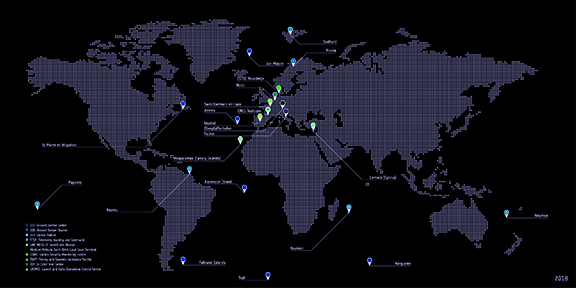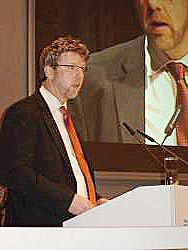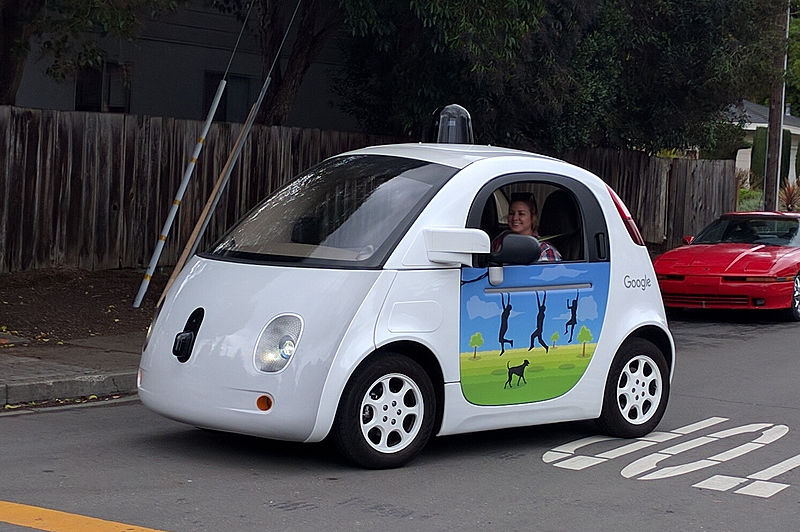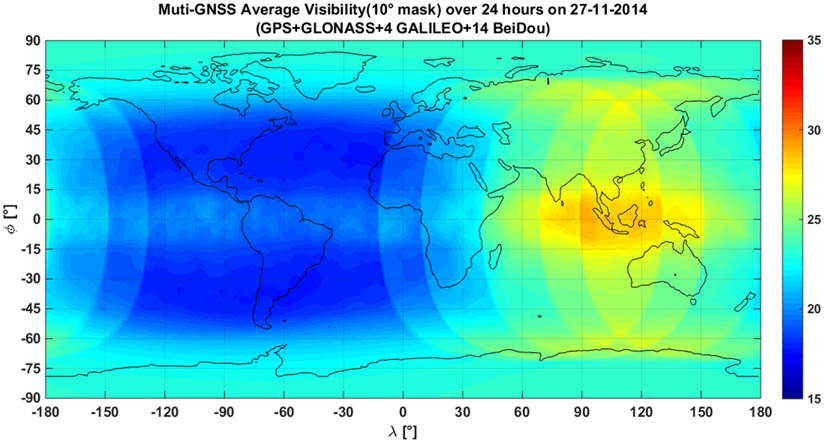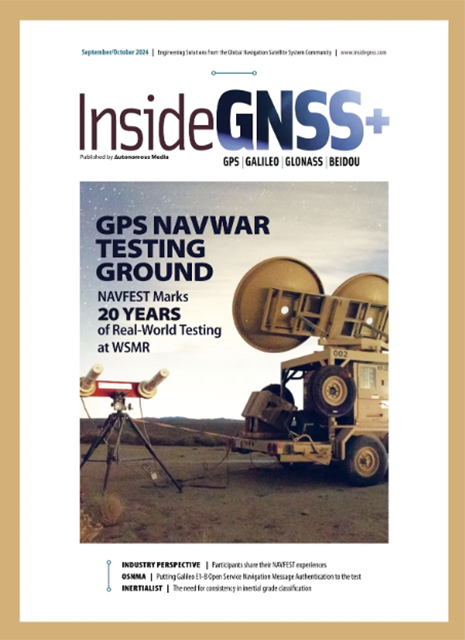Europe has been quite proud of recent Galileo achievements — with good reason — and the global navigation satellite system continues to build off that momentum.
The European Space Agency (ESA) stated today the latest four Galileo satellites have been given the green light to begin working alongside the rest of Europe’s satellite navigation fleet, giving a further boost to worldwide Galileo service quality. Galileo has grown to become Europe’s single largest satellite constellation, built up over 10 launches over the course of this decade. The first of seven double-satellite Soyuz launches took place in 2011, with three sets of four-satellite Ariane-5 launches following during the last three years.
The latest quartet of Galileo satellites were launched together by Ariane 5 last summer, bringing the number of satellites in orbit to 26.
For additional background on Galileo satellites commissioned for operational use, read “Four More Galileo Satellites Brought Online Earlier This Month” on the Inside GNSS website.
Once safely in orbit, these latest satellites entered their in-orbit test commissioning, overseen by a combination of facilities across Europe.
The Launch and Early Operations Phase team of France’s Centre national d’études spatiales (CNES) space agency in Toulouse worked together with the two Galileo control centers in Fucino, Italy, and Oberpfaffenhofen, Germany and the European Space Agency’s (ESA) Redu center in Belgium.
Redu’s 20-meter antenna played an important part during in-orbit testing, allowing for high-resolution monitoring of the L-band navigation signal coming from each satellite, according to ESA.
The two control centers participated by testing their control of the satellites. The operations teams confirmed their fully-trained status and their readiness to manage the fleet that has now reached 26 satellites in total.
David Sanchez-Cabezudo, ESA’s Galileo In-Orbit Testing manager, said in a press release: “All the lessons learned and experience gained in these last years through the Galileo satellite commissioning campaigns have led us to a high level of efficiency and effectiveness – not only in managing the technical aspects of the testing operations but the large number of interfaces at contractual and human levels. A complex network of teams has had to work together to make this activity work.”
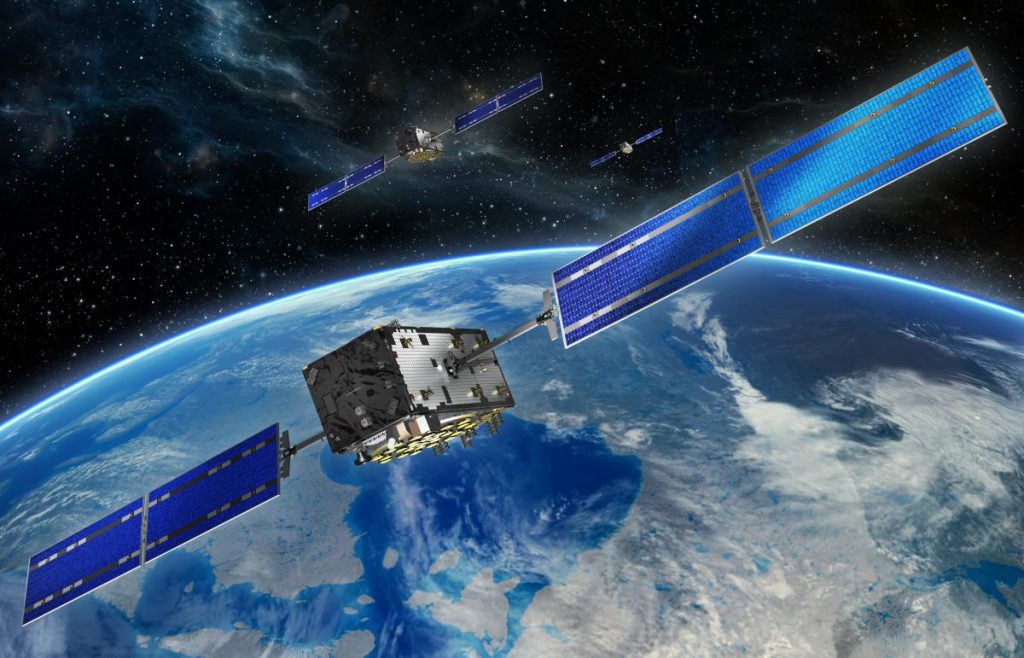
Galileo satellites orbit in three orbital planes in medium Earth orbit, 23,222 kilometers up. The result is that at least four Galileo satellites should be visible from any point on Earth – the minimum needed to achieve a position fix.
Initial Services
Galileo Initial Services commenced on December 15, 2016, with each new addition to the working constellation serving to enhance the stability and speed of the system.
A further 12 Galileo satellites are currently in production by the same industrial consortium – with OHB manufacturing the satellite platforms and Surrey Satellite Technology the navigation payloads.
The next Galileo launch is scheduled for 2020, the same year that Full Operational Capability is set to start.
The Galileo program is funded and owned by the EU. The European Commission (EC) has the overall responsibility for the program, managing and overseeing the implementation of all program activities.
ESA is entrusted with Galileo’s deployment, the design and development of the new generation of systems and the technical development of infrastructure. The definition, development and in-orbit validation phases were carried out by ESA, and co‑funded by ESA and the EC.
The European Global Navigation Satellite System Agency (GSA) ensures the uptake and security of Galileo. Galileo operations and provision of services became the responsibility of the GSA in July 2017.
In an effort to help celebrate the two-year anniversary of Galileo Initial Services, the GSA launched its “Accuracy Matters” Campaign.
Timed to coincide with this milestone, the “Accuracy Matters” campaign, officially launched on December 15, 2018, aims to increase public awareness of Galileo’s successes over the past two years and highlight the added value that Galileo brings to the mass market.
Galileo is already improving the GPS signal that smartphone users receives, giving them extra accuracy and precision. Most Europeans, however, are unaware that they are already benefitting from Galileo, but the GSA says this is about to change with the help of this campaign.
In other Galileo news, ESA awarded a new work contract in September for the Galileo Control Segment — that part of the Galileo system responsible for the monitoring and control of all the satellites in orbit — to GMV Aerospace and Defense, Spain.

